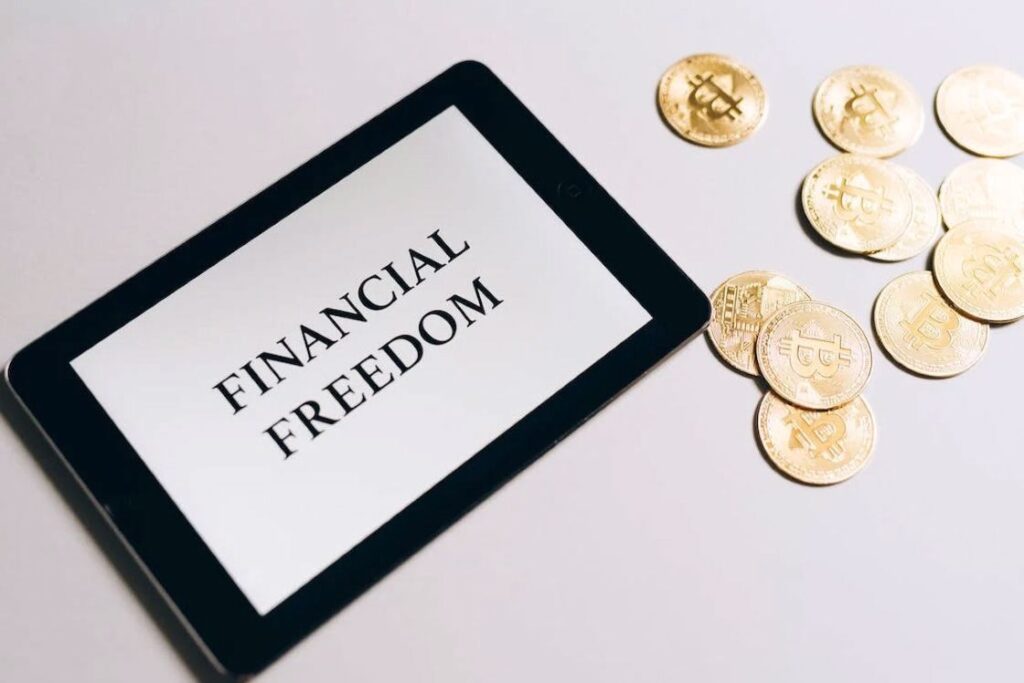There are many different financial planning strategies, and the advice could be more precise. While the advice you receive can be helpful in some cases, it can leave you feeling confused or overwhelmed in others. Learning to build up financial discipline can help you live without falling into debt or suffering from unexpected expenses.
Contents
How to Build Up Financial Discipline
While the following tips are helpful to everyone, I am writing them for those who are making well above the median income yet consider themselves broke. I’m writing this for the people who make decent money yet are still stuck in the paycheck-to-paycheck cycle.

1. Make a Budget
While you know that a budget would help, you just don’t want to do the work.
It’s boring. Hard. You’d rather spend your time doing any one of a million other things.
If your finances are out of control, you need to take control, which happens by putting in the hard work and making a budget.
While I’m not saying you have to do this forever, to get disciplined with your money, you need to for at least a few months.
If you have never budgeted before or tracked your spending, then there are holes in your boat leaking out hard-earned money every single month. You can’t identify what these things are until you take the time to track your spending.
You need to make a budget. You need to watch your spending, and you need to see where your weak spots are.
I wrote a massive guide on zero-sum budgeting, and I promise that it will help you get your financial life in order. How am I so confident? Because I’ve sat across from people in real life and walked them through these exact steps.
2. Cutting Costs
After you’ve got a baseline budget in place, you probably need to start cutting costs to build up as much of a monthly surplus as possible. The bigger the gap you can create between your income and your expenses, the more freedom you’ll be able to “buy” each month.
The easiest place to start is by finding ways to reduce your spending on the big 3:
- Housing
- Transportation
- Food
If you can control those, you don’t need to find every possible way to save a buck.
I have a massive guide of 150 proven ways to save money! It’ll list nearly every way to save money that is worth your time and effort.

3. Saying No To Consumption & Materialism Frees You From The Need For More
If you want to build up your financial discipline, you have to learn to say no–to yourself and occasionally to others.
You have to recognize that the actions you’re taking today, and the sacrifices you’re making, are for a reason. You’re taking control of your finances to create your own secure future. Every time you say no, that’s what you are building towards.
As you start to build up the discipline to say no, you’ll realize that the strength to do so will actually free you from the need for more. The less stuff you own, the less stuff you have to buy, fix, upgrade, or someday replace.
Every time you say no, you create a financial discipline that will lead to financial freedom.
4. Accountability
One of the best ways to stick to any plan, or new habit or reach your goals is to have accountability. Having a partner, team, or people you can fall back on for support and encouragement is such a help to push forward in life.
That way, you can hold each other accountable to your plan, encourage good habits for saving money, and help each other say no when needed.
5. Develop Good Habits That Curb Your Bad Habits
One of the best ways to work through bad habits is by developing good habits that counteract them. One of the biggest money-sucks on anyone’s budget is convenience or a lack of time. You eat out, buy coffee, and pay to get your lawn mowed, all to save time.
What if you were able to counteract these bad habits with good ones?
Personally, I LOVE eating out, and I do it way too often. I usually do it when I am are short on time or don’t have food at home.
Thanks to meal prepping, though, I’ve eliminated my two biggest excuses. Now, I eat out when I want to, not because I feel like I need to.
If you know you have bad money habits, then you need to create some good ones.
- Pay off all credit cards every month
- Set up automatic transfers for savings accounts
- Create a 24-hour rule before buying anything over $100
The point here is to focus on creating good habits rather than avoiding bad ones.
6. Develop a Long-Term Mindset
If you really want to build up your financial discipline, you need to develop a long-term mindset.

Growing your net worth doesn’t happen in a month or even a year. The compounding of hundreds of daily and weekly decisions adds up over time.
The more you adopt a long-term mindset, the more focus, and discipline you’ll have in making those small daily decisions.
“Rome wasn’t built in a day, but they were laying bricks every hour.” James Clear talks about this idea of laying bricks every hour and how small decisions and daily systems can add up to huge results over time.
Stop looking for ways to get rich quickly and focus on setting up a system for your finances that can reproduce results every single month–without you doing anything different.
How a Lack of Financial Discipline Can Sabotage Your Success
A lack of financial discipline can sabotage your financial success in many ways. Here are a few examples:
Overspending and Accruing Debt
If you lack financial discipline, you may spend more than you can afford on non-essential items. This can lead to high levels of debt, which can be challenging to repay and negatively impact your credit score.
When you have a lot of debt, it takes time to build financial success. You will live paycheck to paycheck and have nothing to invest or save.
Failing to Save for the Future
Without financial discipline, neglecting to save for important goals such as retirement or your child’s education can be easy.
Consequently, you will be unprepared for the future and unable to enjoy the financial security of having savings.
This means that you might struggle financially even after retirement. As a result, you will have nothing to fall back on and end up struggling financially.
Not Having an Emergency Fund
A lack of financial discipline can also lead to a lack of emergency funds or savings. As a result, if you face unexpected expenses such as a medical emergency or a car repair, you may have to rely on credit cards or loans to pay for them.
This can put you into further debt and make it even harder to achieve your financial goals.

Poor Investment Decisions
You may be more likely to make poor investment decisions if you lack financial discipline. This can include investing in high-risk investments without understanding the potential risks, failing to diversify your investments, and spreading your risk across different asset classes.
These poor decisions can lead to significant financial losses and make it harder to achieve financial success in the future.
Not Managing Your Money Effectively
Lacking financial discipline can also lead to poor money management. For example, you need to track your spending, pay your bills on time, and clearly understand your financial situation.
Money management can lead to missed opportunities to save money, such as taking advantage of discounts or promotions and can make it harder to reach your financial goals.
Overall, a lack of financial discipline can have severe consequences for your financial success. To avoid these pitfalls, it is essential to develop a budget and stick to it, save regularly for the future, and make intelligent investment decisions. You can set yourself up for long-term financial success by practicing good discipline.
Conclusion
Once you’ve got your system in place for automating savings, paying down debt, and saving for your financial goals, find ways to improve them.
The early days of building wealth are like a slog. The numbers move up slowly, and reaching your savings goals may take a lifetime. But then compound returns really start to add up. Eventually, you hit a point where your monthly investment growth will be more than the amount you add in.
That’s when your pile of money really starts to stack up.
In fact, Saving Your First $300k Takes Roughly the Same Amount of Time as Saving the Next $700k.
The more disciplined you can be in your early years of wealth-building, the quicker you’ll find financial freedom. A long-term mindset is key to getting through these early years.


Love the simple, straightforward approach in this article. You hit on an interesting point, that most spending is for convenience and lack of time. Or, as I’ve discovered in my personal spending habits, we adopt a “I deserve this because I work so hard” mentality. Somehow, we (my hubby and I) managed to eliminate our financial margin. A lot of this came from sheer laziness by going out to eat more than we should and a sense of entitlement from not being careful with entertainment expenses and buying expensive cars and clothes. Boy, we were dumb! The path to getting back on track is tough, but you gotta start somewhere. Thank you for this article. It reinforces the idea that freedom is gained in the margin between income and expenses!
Back when I started my budget, all this sounded too good to be true. Four years later, I have no idea how I ever got along without a budget, I didn’t really. I was living paycheck to paycheck, using credit cards to cover those things that came up, like annual expenses, like auto insurance. Day by day, and little by little, I have gotten a three month emergency fund, and abundant savings for other goals. Had no idea a budget could accomplish so much. Many in the FIRE community don’t need a budget, and I envy them, in a way. For myself, I desperately needed a budget and am very grateful I started one. Had tried many, and found many that didn’t work for me. YNAB was my path to success. I love their education program that goes along with it. That might be what truly saved my finances. If you’d like to check them out, here is a link to their program, https://ynab.com/referral/?ref=Zf7hwkn4UTINuajN&utm_source=customer_referral. I could not recommend it more highly.
It’s all about discipline and taking action. Saving money is harder, stopping spending money is tougher without discipline. Bottom line, as you said, discipline can lead us to financial freedom.